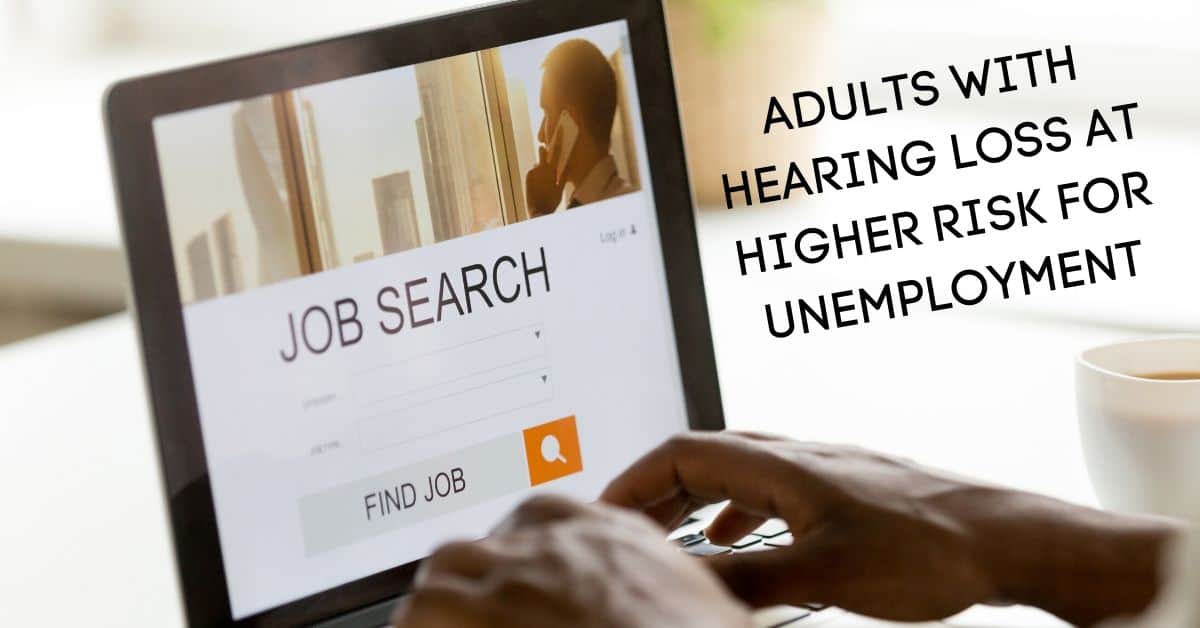Did you know that untreated hearing loss can impact your work? If you’ve been having a hard time following conversations, or can’t hear what’s being said during meetings at work, your hearing loss soon becomes more than an annoyance. In fact, adults with hearing loss have a much higher risk of unemployment than their hearing peers.
Hearing Loss in the Workplace
Why do adults with hearing loss face higher rates of unemployment? Living with untreated hearing loss makes it difficult to follow conversations, both at home and at work. You may struggle to follow conversations with coworkers during lunch break, or keep up to date on everything going on at the office. You’ll also have a hard time following what’s been said during meetings, or even during a one-on-one conversation with your employer.
If you have hearing loss, you’ll struggle to hear in places with a lot of background noise. Due to your hearing loss, your ears and brain can’t distinguish between important speech sounds and background noise. You’ll hear all these sounds equally, and have a difficult time following conversations or focusing on a phone call with a client.
When you can’t hear directions or participate in meetings, you won’t be able to do your best work, and employees with untreated hearing loss are more likely to make mistakes. They’re often overlooked for promotions, and have a higher risk of being fired.
The Cost of Hearing Loss
The World Health Organization estimates that hearing loss costs $750 billion each year worldwide. This includes the costs of lower productivity, higher educational costs, and societal costs.
Adults with hearing loss earn approximately 25% less than those who can hear clearly. The average income for those with hearing loss is $23,481, while their hearing peers have an income of $31,272.
Adults with hearing loss face high rates of unemployment, and those with hearing loss are twice as likely to face unemployment when compared to adults without a hearing loss.
Along with higher rates of unemployment, adults with hearing loss have a harder time transitioning to
new positions, advancing their career, or getting promotions.
Accommodating Hearing Loss in the Workplace
The Americans with Disabilities Act (ADA) protects workers from discrimination based on a disability. If you have hearing loss, you are within your rights to ask for accommodations, and your employer will work with you to make sure you’re able to work effectively and maintain your productivity.
Make sure you get the accommodations you need to hear in the workplace. These are some of the accommodations you can request:
- If you work in a noisy cubicle or office, and the noise is making it hard for you to concentrate when working or talking on the phone, ask to be moved to a quieter corner of the office. Find a quiet workspace away from high traffic areas, such as near the restrooms or break room.
- Ask for meeting notes before a meeting so you can follow along without getting lost, and participate in the meeting by adding your valuable insight and expertise.
- Ask to sit near the speaker during meetings, or wherever you have the easiest time hearing and understanding what’s being said.
- You can request a real-time talk to text program for your phone or computer, so that everything said during the meeting will immediately show up on your screen.
- Ask for all assignments and instructions in writing, either in a memo or in an email. This will make sure you’re on the same page as your employer, and you’ve clearly understood the assignments you’ve been given.
Treating Hearing Loss
Are you struggling to hear at work, and worried you might face unemployment? Hearing aids can help! With speech enhancement features and background noise reduction, hearing aids make it easy to hear at work. You can even use an assistive listening device, such as a mic in the middle of the table or sitting in front of the speaker, that will send these speech sounds directly to your ears.
Treating hearing loss with quality hearing devices can help adults be successful at work, easily interact with colleagues, improve salaries, and mitigate the risk of higher rates of unemployment among adults with hearing loss.


